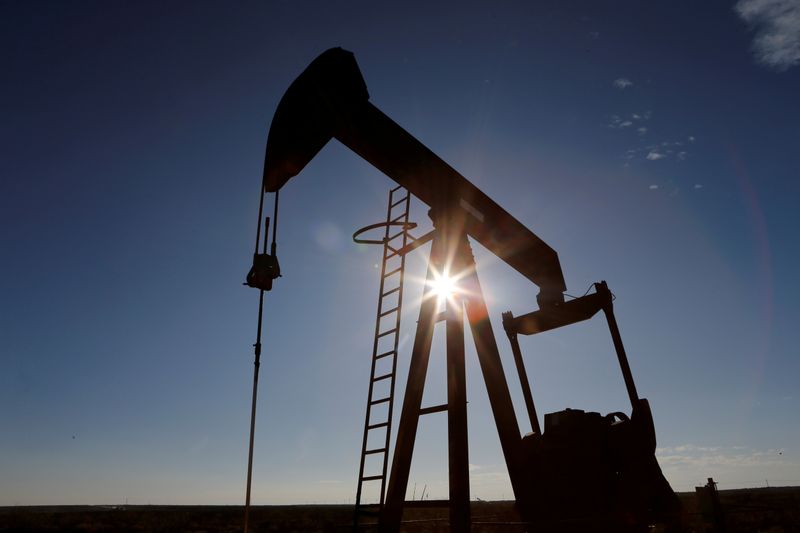By Shadia Nasralla and Julia Payne
LONDON (Reuters) - Oil prices edged higher on Friday, supported by a weaker dollar, though tensions between the United States and China weighed.
Brent crude (LCOc1) was up 26 cents at $43.57 a barrel at 0944 GMT, while U.S. West Texas Intermediate (WTI) crude (CLc1) was up 29 cents at $41.36.
"Both crude benchmarks are roughly back where they were before this week’s upside breakout. Looking ahead, the oil market will likely settle back into a wait-and-see mode amid the increasingly uncertain environment," PVM analysts said in a note.
China ordered the United States to close its consulate in the city of Chengdu on Friday, responding to a U.S. demand this week that China close its Houston consulate.
The dollar slid to 22-month lows against a basket of currencies (DXY).
A weaker dollar usually spurs buying of commodities priced in dollars such as oil because they become cheaper for holders of other currencies.
The U.S. economic outlook has darkened in the past month amid renewed lockdowns in some states to tackle surging coronavirus cases, according to economists in a Reuters poll.
The number of Americans filing for unemployment benefits hit 1.416 million last week, unexpectedly rising for the first time in nearly four months, suggesting the U.S. economic recovery is stalling amid a resurgence in COVID-19 cases.
Globally, more than 15 million people have been infected and over 620,000 have died.
While the rise in infections has fanned fears of renewed government lockdowns, worries that oil demand could be hit have been exacerbated by tensions between the United States and China - the world's top two oil consumers.
In China, congestion at east coast oil ports is adding to costs for shippers and importers even as fuel demand stalls.
Oil prices could see a near-term correction if a recovery in fuel demand slows further, especially in the United States, Barclays (LON:BARC) Commodities Research said.

Still, the bank lowered its oil market surplus forecast for 2020 to an average of 2.5 million barrels per day (bpd) from 3.5 million bpd previously.
(Additional reporting Jessica Jaganathan; editing by Jason Neely and Mark Potter)